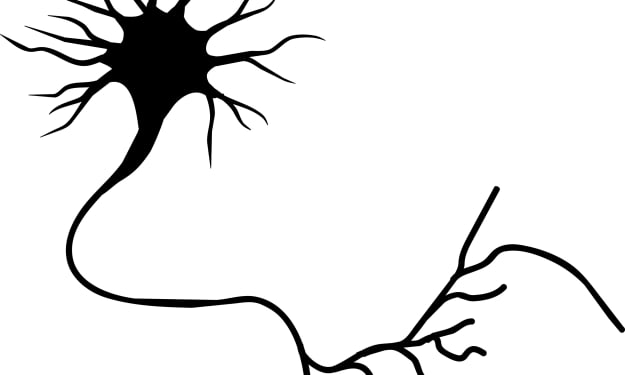The (Non-)Choice of Addiction
A brief glimpse at the struggles of an addict.

Imagine something you really like; I mean really, really like. Something you partake in very often because you enjoy it. It makes you feel good. It helps you relax. Have you thought of it? Okay, good.
Now imagine that thing you like not being available to you. Not because it doesn't exist anymore, but because you find out it's illegal, it's harmful to you, or that someone in your life doesn't approve of it. But, it's something you like, right? It's only affecting you, as far as you know, so what does it matter about any of those factors?
Some of you would think like this; "Well it would really bum me out, but I guess I could give up x because of the effects it would have on my life and other people." Some others of you would think, "I'm still going to do x in any way I can because I like it, it's my life, and I'm not hurting anyone."
This post is about people who thought something along the lines of the second statement.
Human brains are wired to do as many things as they can as quickly as possible, to experience things as fully as possible, and to feel things as strongly as possible. When we are tired, autonomic functions in the body spurred by our brain engage so that our body reaches sleep. When we are hungry, our brain activates hormones and glands in our digestive system to start working. When we do something we want to do and we enjoy it, our brains reward themselves with neurotransmitters like dopamine, serotonin, GABA, and so on. It makes us feel good; we feel positive emotions. We want to feel that as long as possible. We start repeating things we like to do again and again, and we keep getting those positive feelings our brains send to us.
But eventually, it's a diminishing return. We have to do more to feel that feeling, because we do it so much that our brain and body requires more stimulation to get those funny little dopamine neurotransmitters to start running through our brains. We drink more coffee. We chew more gum. We smoke more cigarettes. We binge watch just another half season of our favorite show. We start deviating our pattern of living towards instant and easy pleasure because our brains have decided this is the best and easiest way to complete the cycle.
Drugs and alcohol, the substances we usually associate with someone who is considered an addict, are like cheat codes to forcing the brain into making us feel good. The brain didn't particularly mind too much doing things the old way, though it was getting harder and more strenuous to produce a result, but now with drugs and alcohol, our brain has been informed that now it doesn't have to work as hard to reward the body with good feelings. Now, the brain wants to feel this all the time, as much as possible, because it doesn't have to do anything particularly hard to feel good. But then, eventually, the same amount of those substances doesn't cut it, so the brain and body starts requiring more and more to feel something close to the initial rush of the first time being exposed.
This is the start of an active addiction. It's believed that people can be born with genetic predisposition to being an addict, that being regions of the brain having more space allocated for chemicals found in drugs and alcohol, or anything that people find pleasurable, which in turn excites pleasure particles in our brain to activate.
I think that everyone is an addict to something, but most of have addictions to things that are passable in society. Some people really like exercising, watching movies, collecting cards or memorabilia, or generally things that the public find innocuous.
The answer to an addiction problem is not punitive, tribunal style reprogramming through prisons, shaming, or ousting individuals who already have conflicted feelings about being addicts themselves at times. What I believe should be done is a comprehensive approach to behavioral health that speaks to the examined and unexamined life of the addict. There should be a space where the individual can get honest with themselves, and that's usually only found in residential settings and therapist offices.
1 in 10 addicted people get treatment for their ailments, and of that number, it takes them up to 6 different rehabilitation residential stays to maintain sobriety for any significant amount of time. This, in part, is a failing of the mental health system that is limited in its ability to truly address the person's issues, but also from the lack of education of and spurious shaming by the public.
If we want people we know to stop using drugs, finding new ways to shame them or limit their resources to becoming clean doesn't get them any closer to recovery. As I said before, we all are an addict to something, and that doesn't give us much more merit to devalue how someone tries to get through their life.
About the Creator
Daniel Blitch
Daniel Blitch is a Professional Counselor intern residing in Los Angeles, CA. To date, he's been journeying on a path to imparting his wisdom towards wellness and has taken up many different positions in the field of psychology.






Comments
There are no comments for this story
Be the first to respond and start the conversation.